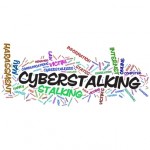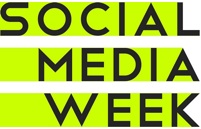Experts Say Some Women Face Violence Through Social Media
Posted by Julie Spira on April 9, 2012 · 6 Comments
 When I was asked as a cyber-relations expert to contribute to an article about cyberstalking and social media safety for Women’s E News, I was honored to provide my two cents worth.
When I was asked as a cyber-relations expert to contribute to an article about cyberstalking and social media safety for Women’s E News, I was honored to provide my two cents worth.
The story appeared in the Ottowa Citizen, Cyberstalking turns web technologies into weapons. The article headline is pretty powerful and will raise several digital eyebrows.
Before you accuse me of being a “Debbie Downer,” you should know that I absolutely love social media. It’s changed all forms of communication, marketing, journalism, and helped develop strong bonds between people who have a voice that should be heard.
When it was pointed out to me that the U.S. National Violence Against Women Survey reported that 60% of cyberstalking victims were women, I realized that we all have a responsibility as friends on Facebook and followers on Twitter to take notice if any of our digital friends are in trouble.
In the U.K., a cyberstalking study conducted by the British Electronic Communication Harassment Organization at Bedford University found that harassment via social networking sites, mobile phone, and email was greater than stalking in-real-life.
As an estimated 4% of cyberstalkers appear on traditional online dating sites, my advice in the article was as follows:
“If a date goes bad or someone breaks up, the jilted person can use the very sites through which they met their victims to turn around and harass them,” says Julie Spira, creator of the site Cyberdatingexpert.com.”
It’s my mission to help people safely navigate the web, both in matters of the heart and in everyday life. Cyber-safety is at the top of my list and I hope you join me in making the the world-wide-web a safer place to reside.
Julie Spira is a cyber-relations and online dating expert and the author of the bestseller, The Perils of Cyber-Dating. She’s the CEO of Social Media and More and Editor-in-Chief at CyberDatingExpert.com.
Photo Credit: © MacX – Fotolia.com
Social Media Obituaries
Posted by Julie Spira on May 11, 2011 · Leave a Comment
 Reactions to death and dying are spreading like wildfire on social networking sites. From live tweeting of Michael Jackson’s funeral on television to the overwhelming, emotional, and political responses to the death of Osama bin Laden, people are turning to social media to mourn the loss of loved ones, leaders, and opponents.
Reactions to death and dying are spreading like wildfire on social networking sites. From live tweeting of Michael Jackson’s funeral on television to the overwhelming, emotional, and political responses to the death of Osama bin Laden, people are turning to social media to mourn the loss of loved ones, leaders, and opponents.
I first started studying what I call the “Social Media Obituary” when I started writing my second book, The Rules of Netiquette: How to Mind Your Manners on the Web. I had observed how friends of mine were reaching out to express their sadness when friends and family members were ill and passed away. I noticed how people connected on Facebook to advise friends of funeral arrangements. At first, I was uncomfortable with the “Social Media Obituary,” but have now that when handled in good taste, which is very individual, there is a place for a web page, site, updates, and a way to remember your loved ones.
In my article on the Huffington Post entitled, “The Social Media Obituary,” I went into great lengths to discuss not just it’s position as a place to hang your social media hat while mourning, but the responsibilities of friends on social networks when someone is crying out for help. The comments on my Facebook page were thought-provoking. They ranged from, “We must look out for each other,” to someone who wished a school friend a Happy Birthday on Facebook, only to find out that the friend had passed away.
In the most recent case, Emily Longley, a single woman, was found dead in her home in the U.K. after posting a Facebook update saying she had a stalker and was scared. A memorial page was created in her honor on Facebook, which now has almost 16,000 comments from mourners and strangers. In other cases, teens and students who were cyberbullied took their lives. These tragedies might have been prevented if we took time to look at their Facebook updates and jumped in to help.
The primary focus of The Social Media Obituary are on tribute pages being created on Facebook. It’s become both a home for us to share our joys and successes, while dealing with real-life issues such as sickness and death. While our relationship status updates include, “Single” to “In a Relationship” to “It’s Complicated” to “Married” and “Divorced,” we don’t have a category to say, “Deceased.” Some profiles stay active on Facebook as a memoriam. Others remain due to lack of digital housekeeping. Tribute sites have been filled with inappropriate comments and have been pulled down. One thing that is known for sure, we now mourn and grieve with the help of our social media friends.
The full article can be found here on Huffington Post. I look forward to reading your comments on the issue. If you get a moment, do like us on Facebook.com/RulesofNetiquette where you can add your comments and thoughts.
Filed under Social Notebook · Tagged with cyber safety, cyberbullying, cyberstalking, death, obituaries, Social Media and More, social media marketing, social media obituaries, social media obituary, social mourning, social networking
PICK MY BRAIN!
CONNECT WITH US!
TESTIMONIALS
On behalf of MAZON and the children of Haiti who we will feed and nourish, I am deeply indebted for the social media marketing that Julie Spira provided for this benefit concert. Without her creating a ‘buzz’ in such a short time, I am certain the event would not have been the success it was. Thank you Julie
Dr. H. Eric Schockman
Former President of MAZON-
















